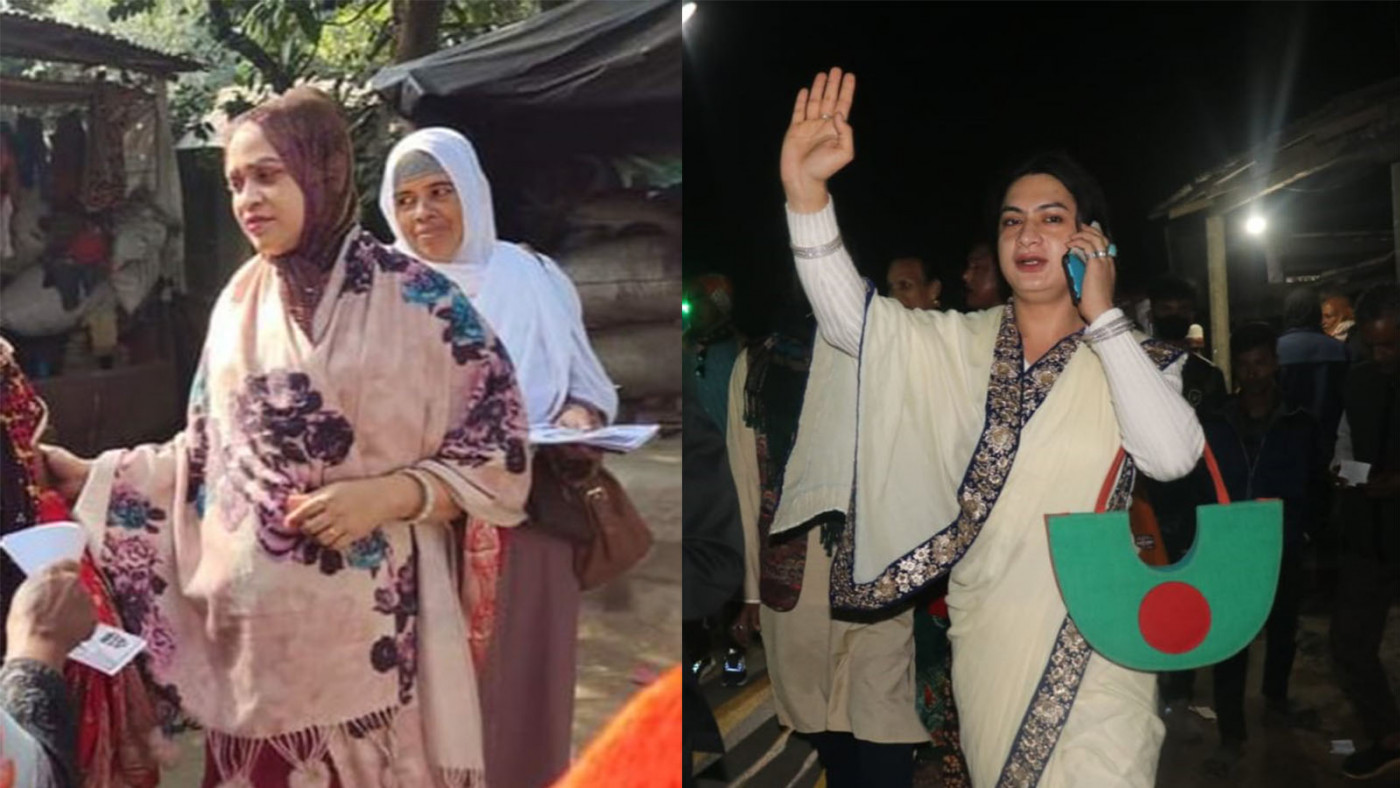In Bangladesh, Dhaka University cancels transgender admissions quota
Colin Stewart is a 45-year journalism veteran living in Southern…
Protesting students support traditional third-gender hijras, but not transgender applicants

Protesting Bangladeshi students have persuaded Dhaka University to drop a transgender admissions quota.
That quota had been established in conjunction with a quota for applicants from the nation’s hijra (third gender) community, which includes intersex people, trans people and many who have undergone castration as a religious sacrifice.
The university’s action comes at a time when two hijra candidates — each of them also described as transgender — are running for parliament. Urmi is running in Gazipur as a candidate of the Bangladesh Supreme Party. Anwara Islam Rani is running in Rangpur as an independent.
On Dec. 22, Rani was physically assaulted while campaigning.
The human rights organization JusticeMakers Bangladesh in France (JMBF) protested the change in the undergraduate admissions quota and condemned the attack on Rani. JMBF said both events violate Bangladesh’s Constitution and the U.N.’s Universal Declaration of Human Rights.
Dhaka University had introduced a “transgender/hijra” quota for undergraduate admissions in the last academic year (2022-2023) to ensure higher education opportunities for sexual minorities. After the quota for the 2023-2024 year was published on Dec. 18, students that JMBF described as “reactionary Muslims” organized a protest against it.

The change in the quota, which a “human chain” of protesters demanded, was the exclusion of “those who have voluntarily transitioned or who identify as a different gender despite having fully female or male body parts”, The Front Page reported. However, the quota will remain in effect for “those who are of gender diversity other than male and female by birth and nature.”
The Dhaka Tribune reported that the anti-trans protesters did not oppose a quota for hijra applicants: “The students participating in the human chain said that according to the constitution of Bangladesh, the backward communities should be given higher education opportunities through quota.” The university should “ensure adequate facilities and safe environment for hijra community students on the campus”, they said.
Rani was attacked on Dec. 22 by leaders and activists of the Jatiya opposition party while she was campaigning in Rangpur city.
While talking to a gathering of 20 to 25 people, some workers and supporters of the Jatiya Party seized the hand mic from her hand and started pushing her. They then chased her away after abusing and threatening to kill her.
Despite the attack, Rani said she would continue campaigning, which she predicted would result in victory.
In a public statement, human rights lawyer Shahanur Islam, the founding president of JMBF, expressed anger and condemned the two incidents. They “set a negative example of the increasing rise of reactionary forces due to the lack of democracy and the rule of law in the country, ” he said.
He demanded quotas for backward sexual minorities in every educational institution in the country, including Dhaka University.
He also called for the prompt arrest, fair trial and punishment of those who attacked Rani; repeal of anti-gay Article 377 of the Penal Code; and the enactment of a Sexual Minorities Protection and Rights Act to eliminate all types of discrimination against sexual minorities.





Longtime activist resumes quest for justice for LGBTQ+ Jamaicans